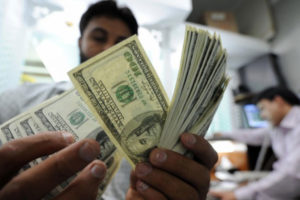About 100 bird species are predicted to go extinct based on current farming and forestry practices, according to a new global analysis.This number has increased by 7% over the first ten years of this century alone, say scientists.
They say the biggest factor is cattle farming, but the impact of oil seed crops like palm and soy is growing fast. By comparison, an estimated 140 birds have been lost over the past 400 years. International researchers used bird extinction as a measure of the loss of biodiversity – the variety of plant and animal life in the world or in a particular habitat – linked with international trade in food and timber.
The research, published in the journal, Nature Ecology & Evolution, shows that international trade can drive threats to animal species far from the countries where the goods are consumed.In 2011, about a third of biodiversity impacts in Central and South America, and a quarter in Africa were driven by the consumption of goods in other parts of the world, says the team.
The issue of biodiversity loss cannot be addressed without adding remote responsibility, i.e. people taking responsibility for the goods they buy at the supermarket, said co-researcher, Prof Henrique Pereira of the German Centre for Integrative Biodiversity Research (iDiv) in Leipzig, Germany.
“We have to provide more information for consumers on that – so that they know what they are buying,” he told BBC News.Co-researcher Alexandra Marques added: “We must address unsustainable patterns of consumption driven by economic growth. Our choices here will have consequences elsewhere.”
The researchers estimated the number of bird species at risk of extinction due to the conversion of natural habitat to land for agriculture and forestry between 2000 and 2011.They came up with a figure of as many as 121 bird species predicted to go extinct in the future if there is no change to current land use.
(By comparison, an estimated 140 bird species have been lost globally since the beginning of the 16th century).Ariel Brunner of conservation group, BirdLife Europe, said the study adds to a growing body of evidence showing that unsustainable food and farming system is “at the very heart of the ecological crisis – both in terms of driving the collapse of biodiversity and contributing to climate change”.






















